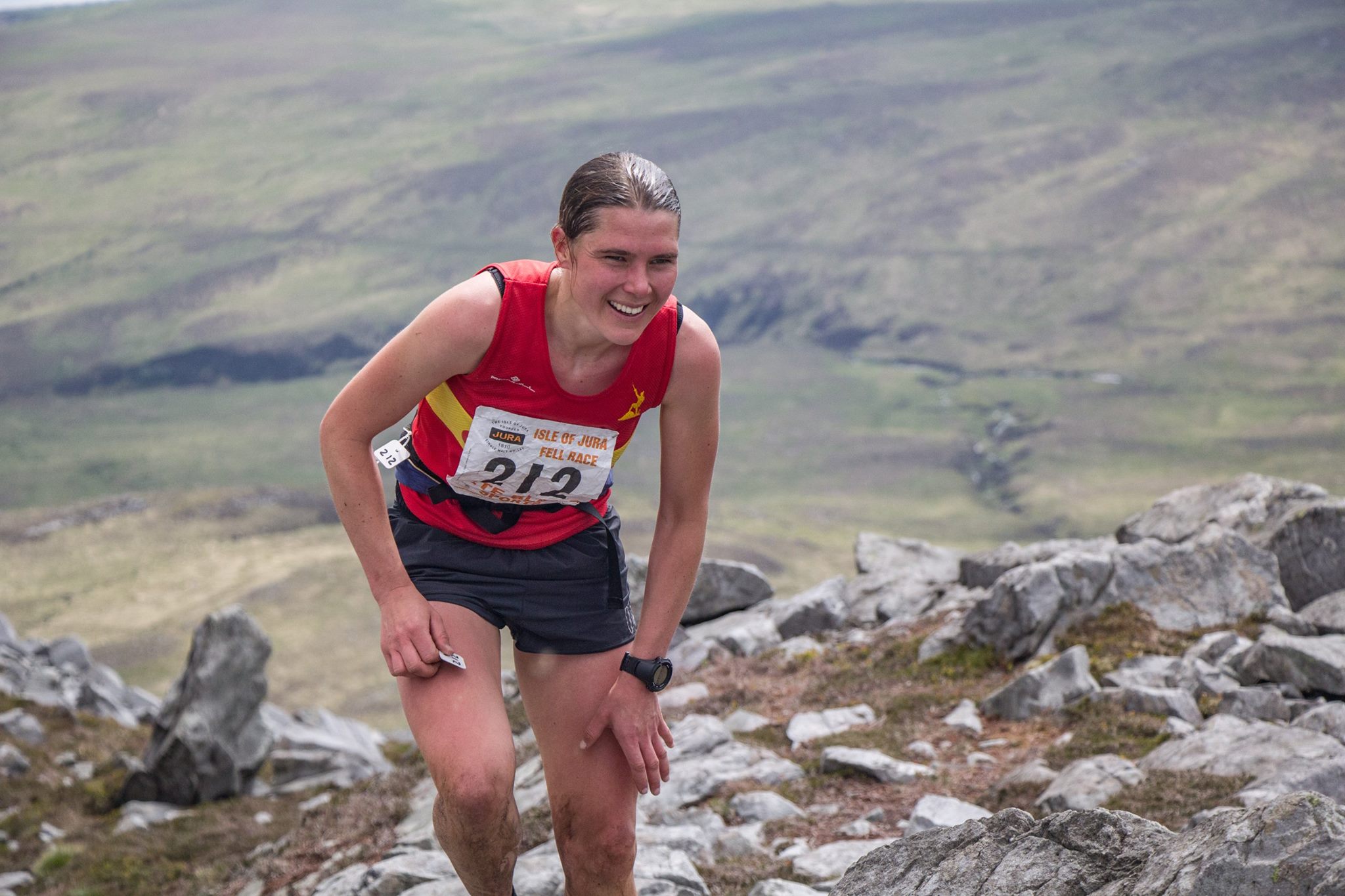Every year, athletes from all over the world gather at the start of the Pennine Way National Trail in the UK to compete in the Montane Spine Race, a 268 mile long ultramarathon that stretches from Edale in Derbyshire to Kirk Yetholm, a village just inside the Scottish border. Athletes who compete in this endurance race, one of the world’s toughest and most challenging, endure wind chill lows of -20°C, 45 mph winds, and no official rest breaks, forcing them to struggle with sleep deprivation as they strive to complete the race in only a few days. Until this month, the record for the fastest person to complete the trail was held by Eoin Keith, who finished the race in 95 hours and 17 minutes. However, this record has just been broken by Jasmin Paris, a British runner, scientist, and veterinarian, who completed the race in 83 hours and 12 minutes.
“For months before the race, Paris got up at 4am to train, running for 70 to 80 miles a week, sometimes while carrying her full pack or her baby.”
For months before the race, Paris got up at 4am to train, running for 70 to 80 miles a week, sometimes while carrying her full pack or her baby. Endurance can make or break the performance of a runner in an ultra-marathon. Unlike 5km or 10km runs, where athletes push themselves to complete the race as quickly as possible, the aim of an ultra-endurance race is to simply keep going to the end using a shuffling pace to minimise energy expenditure.
Ultra-marathons also require a lot of mental strength on top of the physical demand. A 2002 paper published in the International Journal of Sport Nutrition and Exercise Metabolism suggested that around half of ultra-marathon runners experience significant changes in their mental state. Pain from problems such as blisters and muscle problems is a huge mental barrier that an ultra-runner must overcome in a race. Carla Meijen, a sports psychologist in St Mary’s University, London, said “There’s some evidence to suggest that competitors in ultra-endurance events have a higher pain tolerance. We don’t quite know whether that pain tolerance is the result of pushing yourself and going through all these events, or whether it’s something that you have from the start.”
“In the entirety of the race, Paris only had three hours of sleep, which affected her mental state.”
During the race, Paris only had three hours of sleep, which affected her mental state. She hallucinated on the last day of the race, having visions of little animals appearing all around her. In races that last under 36 hours, most runners do not sleep at all. If it is more than that, they may take naps that last between 10 and 30 minutes. A 2013 paper published in PLOS One showed that these naps may actually be beneficial, as running a slower pace and taking quick catnaps had a protective effect on the muscles.
“Only 1% had been diagnosed with heart disease or had a stroke.”
In 2014, researchers at Stanford University and the University of California, Davis, published a study that highlighted the risks and benefits of ultra-running. The researchers found that ultra-runners had low instances of high blood pressure and irregular heartbeats, and only 1% had been diagnosed with heart disease or had a stroke. Only a few had experienced cancer. These figures are generally lower than in age-matched American adults. However, the study found that runners have a high incidence of breathing problems, with a third reported to have experienced allergies or asthma after running.
Paris’s win has captured the attention of the nation for a good reason. Not only did she smash the record of the previous male winner, she also expressed milk at four out of five checkpoints. While it is true that male athletes typically outperform women in purely physical challenges, in ultra-endurance races, this difference may dissolve as the task becomes a mental battle. Recent studies have shown that psychological factors including better pacing means women are more likely to finish endurance races than a male counterpart. Some speculate that physical factors such as lower centre of gravity and slower carbohydrate burn, may make women more competitive against men in endurance races.
Jasmin Paris’s resilient mental stamina, combined with preparation and athleticism, and perhaps, the practise of sleep deprivation that comes with being a parent to a baby, was a recipe for success regardless of gender. Indeed, we can all take inspiration from the grit and courage that Paris displayed during this limit-defying race, and perhaps we can challenge ourselves by putting our minds and bodies to the test.






